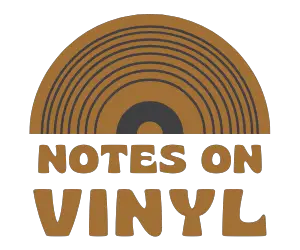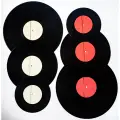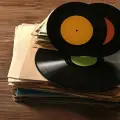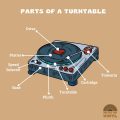No matter how much back and forth there is, nor how much rebuttal, there never seems to be a solid answer to the age-old rivalry between CD vs vinyl.
And for good reason. This is largely an issue that can only be dealt with subjectively, with each person’s ears offering forth a different perspective.
Today I can only offer you my own opinion alongside some of the basic facts.
Table of Contents
- CD vs Vinyl Comparison
- Sound Quality Comparison
- Durability and Longevity
- Cost and Availability
- Digital vs Analog Quality
- Cultural Impact
- User Preferences and Trends
- Democratization of the Form
- Stick it to the Man, and Whoever Else
- Final Tones
- FAQs
CD vs Vinyl Comparison
| CDs | Vinyl | Verdict | |
|---|---|---|---|
| Audio Fidelity | Better signal-to-noise ratio, superior channel separation, and consistent playback speed | Warm, smooth, and ceaseless sound playback, but prone to noise and speed variations | CDs offer better technical audio fidelity, but vinyl provides a unique, warm, and organic sound that some prefer |
| Durability | Less susceptible to environmental conditions and physical degradation from repeated playing, but prone to scratches and “CD rot” | More susceptible to environmental conditions and physical degradation from repeated playing, but can outlast CDs with proper care | Both formats have their own durability challenges, but vinyl can outlast CDs with proper handling and storage |
| Cost and Availability | Generally less expensive than vinyl, with a wide range of prices for rare and collectible editions | More expensive than CDs, with rare pressings and limited editions commanding high prices | CDs are generally more affordable and accessible, but vinyl offers a unique collecting experience with rare and limited editions |
| Cultural Impact | Marked a significant shift in the music industry, making music more portable and accessible | Experiencing a resurgence in popularity, driven by a desire for a tactile, immersive listening experience and a sense of nostalgia | Both formats have had a significant cultural impact, with CDs revolutionizing the music industry and vinyl enjoying a recent revival |
| User Preferences | Valued for their convenience, portability, and digital format | Appreciated for their warm, organic sound and the tactile experience of handling physical records | User preferences vary based on individual priorities, such as sound quality, convenience, and the overall listening experience |
Sound Quality Comparison
When it comes to the great debate between vinyl and CDs, sound quality is often at the forefront of the discussion. Both formats have their unique characteristics that appeal to different types of music enthusiasts. Let’s dive into the nitty-gritty of how these two formats stack up against each other in terms of audio fidelity and the overall listening experience.
Warmth of Vinyl vs Clarity of CDs
One of the most notable differences between vinyl and CDs is the perceived “warmth” of vinyl’s sound. This warmth is often attributed to the analog nature of vinyl records, which can add a certain level of depth and richness to the music. Some audiophiles swear by the organic, almost tangible quality that vinyl brings to the table.
On the other hand, CDs are known for their crystal-clear sound and superior dynamic range. The digital format of CDs allows for a more accurate representation of the original recording, without the inherent limitations of analog media. This means that you can hear every nuance and detail in the music, from the softest whispers to the most explosive crescendos.
The Perspective of Sound Engineers and Audiophiles
When it comes to the opinions of experts in the field, sound engineers and audiophiles often have differing views on the vinyl vs CD debate. Many sound engineers appreciate the precision and consistency that CDs offer, as they allow for a more faithful reproduction of their carefully crafted recordings.
However, some audiophiles argue that the analog nature of vinyl adds a certain je ne sais quoi to the music, a certain character that can’t be replicated by digital means. They believe that the slight imperfections and variations in vinyl playback actually enhance the listening experience, making it feel more authentic and engaging.
Audio Fidelity
If we are looking at the plain facts on paper, then there is no real competition in the battle between CD vs vinyl: CD wins hands down.
There is a far better signal to noise ration, meaning there is less interference with regards to hissing, something that vinyl and turntables in general suffer from a hell of a lot. There is also superior channel separation, and CDs do not tend to fall prey to a sheer fact of the turntable experience, that being that the speed can vary from time to, perhaps owing to inconsistencies in the belt drive vs direct drive turntable.
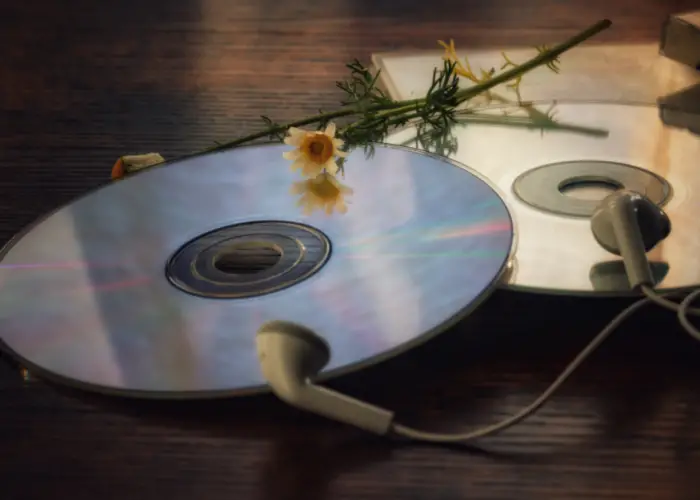
There is also the argument that CDs and digital audio in general can offer a wider spectrum of sounds in the same or a similar package, offering a broader representation of source audio from across a wider range of the frequency spectrum.
However, the arguments against CD vs vinyl still stand, in that no matter how precise the original sample rate of a recording and production might be, it can never quite match the so called smooth and ceaseless sound playback of analog and vinyl audio.
CDs deal in the digital, meaning that the music produced, even if originally recorded and mixed on analog gear, is broken down into binary data after the fact. Digital music is nothing more than a series of 1’s and 0’s that are imbibed within a CD and read with a laser by a CD player.
Thus, though far more prone to extraneous sources of noise, vinyl analog audio provides an inherently more warm and life like sound, something that it has been garnering a reputation and new found appreciation for in the past 10 or so years since the new vinyl boom.
So, Which Sounds Better? CD vs Vinyl?
This is a difficult question to answer without getting into one’s own politics, for both digital audio and analog audio, CD vs vinyl, bring something different to the table and in a lot of ways it almost feels a bit silly to compare them to one another as they are trying to do such different things from different places.
I personally use digital audio for most of my listening at the moment, mostly because I am out and about doing work and rarely at home and able to listen to records, though when I am at home I am either spinning discs or cassettes. Balance is key!
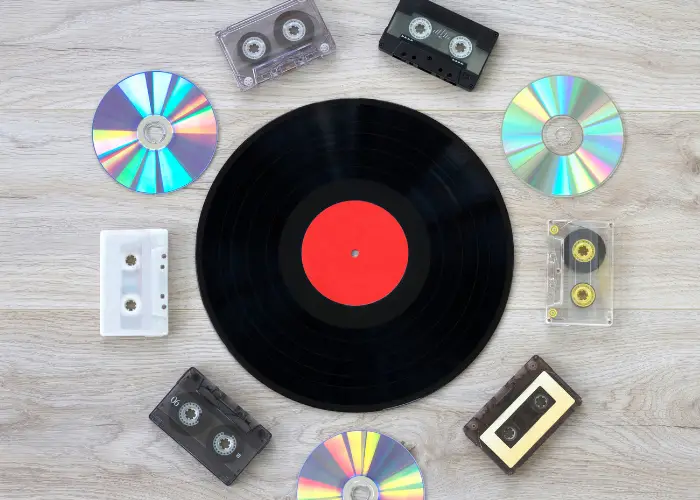
There will undoubtedly be advocates on both sides of the great divide, those who believe in the perks of digital audio and those who are far stronger supporters of analog audio. I, however, think there is something to be said for both.
Despite being a record collector myself, I still support the use of digital technologies. Bands like Autechre, whom I love dearly, would simply not exist in any guise they have adopted from the last two decades were it not for digital technologies, and there are a whole host of other artists who have used the good and bad aspects of digital audio technology for their own artistic endeavors.
Glitch music, for example, is firmly rooted in the idea of error as something to be cherished, or at the very least something to be appreciated for its artistic qualities.
Artists like Oval in the 90s were a major inspiration even to such pop figureheads as Björk, who sampled the song ‘Aero Deck’ on her early 00s album Vespertine, using the microscopic clicks and scrapes of digital audio errors to mirror the small vulnerabilities one displays at all times in a domestic relationship.
Durability and Longevity
When it comes to the longevity of your music collection, both CDs and vinyl have their own unique challenges. While CDs may seem like the more durable option at first glance, vinyl records can actually outlast them if properly cared for.
Let’s take a closer look at the lifespan and maintenance requirements of these two popular formats.
Lifespan
Though they attempt to do the same sort of thing, operating under the broad umbrella of recording and/or reproducing audio for the consumption of whoever is interested, it is in their physical and corporeal differences that most will be able to tell of the differences between CD vs vinyl, at least on the surface.
It is especially upon the durability of the physical formats themselves that many rely on when making a firm argument against the resurgence of vinyl in the early 21st century.
The argument thus goes that CDs experience little to no physical degradation over time and with repeated playing, unlike records, owing to the fact that the disc is read by a laser within the CD player which cannot technically do any physical harm to the disc’s surface.
CDs are also far less susceptible to the various environmental and ambient conditions that can so easily mar a record, such as temperature and humidity of the place in which they are stored, not to mention just being a bit more structurally sound owing to their smaller size and accompanying density.
They are, however, still very much susceptible to scratches and more extreme temperature conditions. Also, despite arguments otherwise, there are certain forms of CDs which do degrade over time, such as those burned at home by the user.
True enough, records noticeably degrade in quality with repeated playing, since the mechanism that reads the grooves on the disc is a literal needle that scrapes itself along the surface of the record, needing physical friction to work.
As previously mentioned, they are also far more susceptible to even mildly temperamental environmental conditions, and thus will records need to be stored in a controlled environment to prevent degradation and to ensure a longer life for the record and the collection as a whole.
The Achilles’ Heel of CDs: Scratches and Wear
One of the biggest threats to the longevity of CDs is physical damage. While CDs are often touted as being more durable than vinyl, they’re not immune to scratches and scuffs. A single deep scratch can render a CD unplayable, and even minor surface scratches can cause skips and glitches in the audio.
Moreover, CDs are prone to a phenomenon known as “CD rot,” where the reflective layer of the disc deteriorates over time. This can happen due to exposure to extreme temperatures, humidity, or even just the natural aging process. When CD rot sets in, it can cause the disc to become unreadable, effectively erasing your music collection.
The Surprising Resilience of Vinyl
Contrary to popular belief, vinyl records can actually be quite durable when handled and stored properly. While it’s true that vinyl is susceptible to scratches and warping, these issues are often the result of improper handling or storage rather than an inherent flaw in the medium itself.
In fact, with proper care, a vinyl record can easily outlast a CD. The key is to handle your records gently, store them vertically in a cool, dry place, and keep them clean using a carbon fiber brush or a specialized record cleaning solution. By following these simple steps, you can ensure that your vinyl collection will be spinning for decades to come.
The Science of Preservation
When it comes to the longevity of physical media, material science plays a big role. CDs, for example, are made of polycarbonate plastic with a reflective layer of aluminum. Over time, this aluminum layer can oxidize and corrode, leading to the dreaded CD rot.
Vinyl records, on the other hand, are made of polyvinyl chloride (PVC), a durable plastic that’s resistant to decomposition. The grooves on a vinyl record are also physically etched into the surface, which means that they can’t be erased or corrupted like the digital data on a CD.
Of course, proper storage is essential for both formats. Exposure to extreme temperatures, humidity, or direct sunlight can degrade both CDs and vinyl over time. The key is to find a cool, dry, and dark place to store your collection, and to handle your discs and records with care.
Cost and Availability
When it comes to building your music collection, cost and availability are two important factors to consider. Both CDs and vinyl have their own unique markets, with prices that can vary widely depending on factors like rarity, condition, and demand.
So how do these two formats stack up in terms of affordability and accessibility?
The Thrill of the Hunt: Collecting Rare Editions
For many music enthusiasts, the joy of collecting isn’t just about the music itself – it’s also about the thrill of the hunt. Both CDs and vinyl have their share of rare and collectible editions that can command high prices on the secondary market.
In the world of CDs, limited edition releases, promotional copies, and out-of-print titles can all be highly sought after by collectors. Some of these rare CDs can sell for hundreds or even thousands of dollars, depending on their scarcity and desirability.
Vinyl collectors, meanwhile, are always on the lookout for rare pressings, limited edition colored vinyl, and other unique finds. A original pressing of a classic album in mint condition can be a true gem in any record collection, and can often fetch a hefty sum from fellow enthusiasts.
Brick and Mortar vs. Online: Where to Shop
When it comes to actually buying CDs and vinyl, there are two main options: brick and mortar stores and online marketplaces. Each has its own advantages and disadvantages, and the best choice for you will depend on your personal preferences and priorities.
Brick and mortar music stores, like independent record shops and big box retailers, offer the opportunity to browse in person and potentially score some great deals on used or clearance items. Many music lovers enjoy the tactile experience of flipping through rows of CDs or crates of vinyl, and the chance to chat with knowledgeable staff about new releases and recommendations.
Online marketplaces, like Amazon, eBay, and Discogs, offer a wider selection and the convenience of shopping from home. They can be especially useful for tracking down hard-to-find titles or comparing prices from multiple sellers. However, the lack of a physical product to inspect before buying can be a drawback, particularly when purchasing used items.
Digital vs Analog Quality
Despite how subjective an experience it can be even just listening to the same sound or nugget of music as another person with seemingly the exact same set of ears, there are several things that we ought to take for objective facts, at least as far as facts go themselves.
CDs (or Compact Discs) are a medium for storing digital music, meaning that the music stored within is done so as binary data, each disc (when full) imbibed with a series of 1’s and 0’s that somehow comes to represent the original song as intended by the producer and artist.
The standard CD setup is of 2 channels, 16 bit, 44.1 kHz – an industry standard at this point – which is read by a laser within the CD player which decodes the data and plays it back as sound through a set of adjoining speakers.
By contrast, and as the central dichotomy that we are seeking to establish and explore today, vinyl is a medium that stores analog audio by analog means, which means that upon the physical disc of a record there is the actual music imprinted within the grooves.
This is stored within the several vinyl record types so that, when these grooves come into contact with a needle specialised for the job, they can read the vibrations and amplify them out for the listener’s pleasure.
Like the CD, a record is split into two channels, with each side of the stereo field dedicated to each separate side of the groove, both being brought into unison by the needle and the stereo system in post. And of course properly using the record player.
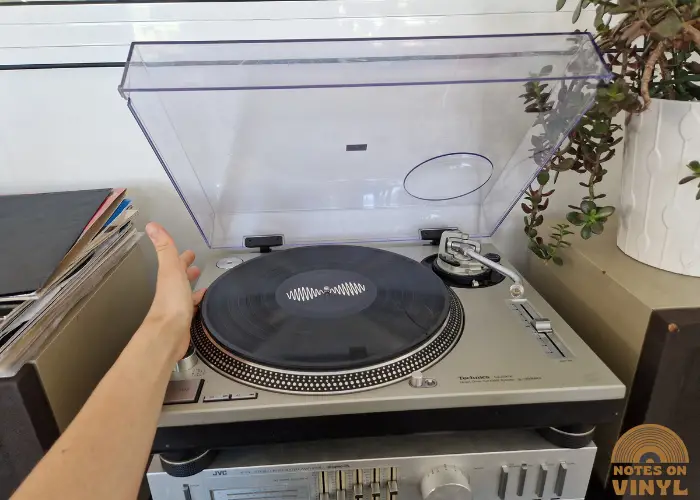
Both CDs and vinyl, digital and analog, are obviously trying to do the same sort of thing, but they come from such different socio-historical contexts that they are bound to produce different results.
Cultural Impact
When it comes to the cultural significance of music formats, both CDs and vinyl have left an indelible mark on the history of music consumption. From the rise of the compact disc in the 1980s to the surprising resurgence of vinyl in recent years, these physical formats have shaped the way we experience and collect music. Let’s dive into the cultural impact of CDs and vinyl, and explore how they continue to influence music trends and collector culture.
The CD Revolution: Digital Music Goes Mainstream
The introduction of the compact disc in the early 1980s marked a seismic shift in the music industry. Suddenly, music fans had access to a format that promised pristine sound quality, durability, and convenience. CDs quickly overtook cassette tapes and vinyl as the dominant format, and by the mid-1990s, they accounted for the vast majority of music sales.
The rise of the CD also coincided with the birth of the digital age, as computers became more prevalent in homes and workplaces. CDs were the first digital music format to gain widespread adoption, paving the way for the eventual rise of digital downloads and streaming services.
The cultural impact of the CD was significant, as it changed the way people consumed and collected music. No longer were music fans tethered to bulky vinyl records or fragile cassette tapes – they could carry their entire music library in a compact, portable format. CDs also made it easier for artists to release longer albums and include bonus tracks, leading to a shift in the way albums were conceived and structured.
The Vinyl Revival: Everything Old is New Again
In the early 2000s, as digital downloads began to erode CD sales, many industry experts predicted the death of physical music formats. But something surprising happened: vinyl, the format that had been all but written off as a relic of the past, began to make a comeback.
The vinyl revival, as it came to be known, was driven by a combination of factors. Some music fans longed for the tactile experience of handling a physical record, while others appreciated the warmer, more organic sound of vinyl. Collectors sought out rare and limited edition pressings, while younger generations discovered the format for the first time.
As the vinyl revival gained steam, it began to have a significant impact on the music industry. Record stores, many of which had closed their doors in the wake of the digital music boom, began to reopen and thrive. Artists began releasing their music on vinyl again, often with special packaging and bonus features to appeal to collectors.
The cultural impact of the vinyl revival has been significant, as it has helped to keep the physical music format alive in an increasingly digital world. It has also fostered a sense of community among music fans, as vinyl collectors gather at record stores, trade shows, and online forums to share their passion for the format.
The Future of Physical Music Formats
As we look to the future of music consumption, it’s clear that both CDs and vinyl will continue to play a role, even as streaming services dominate the market. CDs remain a convenient and affordable option for casual music fans, while vinyl appeals to collectors and audiophiles who value the format’s unique sound and tactile experience.
Moreover, the cultural significance of physical music formats extends beyond just the music itself. For many fans, CDs and vinyl represent a tangible connection to their favorite artists and a way to express their identity through their music collection. The art of the album cover, which has been largely lost in the age of digital music, remains an important part of the physical music experience.
User Preferences and Trends
As music enthusiasts navigate the ever-evolving landscape of music consumption, the choice between CDs and vinyl often comes down to personal preferences and the prevailing trends of the time. While some listeners prioritize sound quality above all else, others value the convenience and portability of digital formats. Let’s explore the factors that influence these preferences and examine how music consumption trends have shifted over the years.
The Great Debate: Quality vs Convenience
One of the primary factors that drives user preferences when it comes to music formats is the balance between sound quality and convenience. For audiophiles and purists, the warm, analog sound of vinyl is often the gold standard, offering a listening experience that feels more authentic and immersive.
On the other hand, many music lovers prioritize the convenience and portability of digital formats like CDs and streaming services. The ability to carry an entire music library in your pocket or access millions of songs with just a few taps on a screen is a compelling proposition for those who value ease of use over absolute sound quality.
Ultimately, the choice between quality and convenience often comes down to individual priorities and listening habits. Some music enthusiasts may have a dedicated listening room with a high-end stereo system, while others may do most of their listening on the go via headphones or car stereos.
The Rise of Streaming: A Paradigm Shift
In recent years, the rise of streaming services like Spotify, Apple Music, and Tidal has fundamentally changed the way people consume music. With vast libraries of songs available on-demand and accessible across multiple devices, streaming has become the dominant mode of music consumption for many listeners.
This shift towards streaming has had a significant impact on the sales of physical formats like CDs and vinyl. As more and more people opt for the convenience and flexibility of streaming, the market for physical media has become increasingly niche.
However, this doesn’t mean that CDs and vinyl are dead – far from it. Many music enthusiasts continue to value the tangible, collectible nature of physical formats, and the ritual of putting on a record or CD and listening to an album from start to finish remains a cherished experience for many.
The Resurgence of Vinyl: A Trend or a Movement?
In the midst of the streaming revolution, vinyl has experienced a surprising resurgence in popularity. Sales of vinyl records have been steadily increasing over the past decade, with many music fans rediscovering the format or discovering it for the first time.
This vinyl revival has been driven by a combination of factors, including a desire for a more tactile, immersive listening experience, a growing appreciation for the art and ritual of vinyl collecting, and a sense of nostalgia for a bygone era of music consumption.
However, it’s worth noting that vinyl still represents a relatively small slice of the overall music market, and its resurgence may be more of a cultural trend than a full-scale movement. While vinyl sales have been growing, they still pale in comparison to the numbers posted by streaming services and digital downloads.
The Future of Music Consumption: A Hybrid Approach
As we look to the future of music consumption, it’s clear that no single format or platform will dominate the landscape entirely. Instead, we’re likely to see a hybrid approach that combines the convenience of digital formats with the tangible, collectible nature of physical media.
For some music enthusiasts, this may mean curating a carefully selected vinyl collection while also maintaining a subscription to a streaming service for on-the-go listening. For others, it may mean building a library of CDs or high-resolution digital files to enjoy on a high-end stereo system.
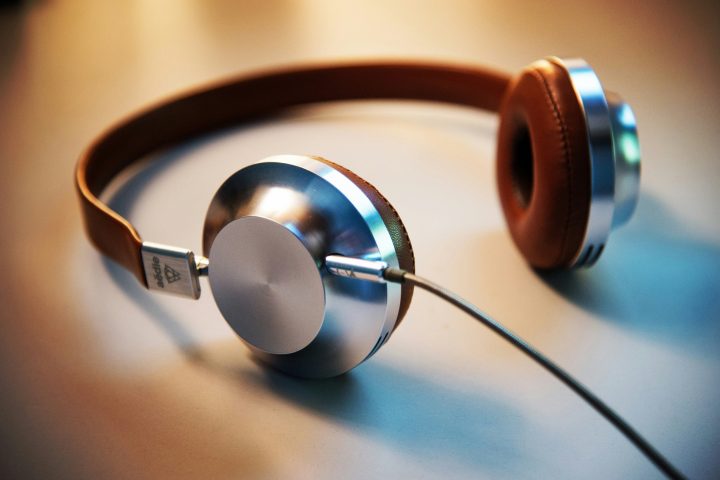
Democratization of the Form
With the dawn of digital audio technologies such as the CD rom, the door has been theoretically opened for anyone with a modern enough computer set up to create their own CDs at home for a fraction of the cost of doing a similar thing with their own vinyl disc.
These CD R’s and CD RW’s, instead of being stamped at a factory, use photo-sensitive dyes to imbibe the binary code within, meaning that, yes, anyone with a capable disc drive can get involved.
Not only that, but the resulting audio experiments can be shared quickly and easily, either with the disc itself or by USB stick or even by email of Bluetooth. This has led to an unprecedented decentralization and democratization of the music industry, which you are firmly living in at this present moment.
This does, however, make it sound like a revolution and as though it has never happened before. Really, this is a repeat of the very same thing that happened when cassette technology took off in the latter decades of the 20th century, allowing people to record their favorite songs or sound bites from the radio or from another person’s cassette tape onto their own tape, meaning they did not have to buy their own tape.
This obviously sent the music industry into a bit of a panic, something that they attempted to bolster against with things such as DRM (or Digital Rights Management), which could encrypt certain digital audio technologies from being hacked into and spread around illegally.
Even now, though, there is an ever-burgeoning subculture of cassette collectors and underground Lo-Fi musicians who use such antiquated technologies as though pining for a time when subversion was that much simpler.
Stick it to the Man, and Whoever Else
Now, normally I would be very much up for the democratization of anything, putting it in the hands of its user base and such. However, in this instance of CD vs vinyl I might at least ask you to think your actions through a little more before proceeding to download whatever you like.
It is obviously somewhat of a good thing that just about anyone can listen to just about anything they want and that they can essentially do so whenever they please.
This is the aspect of democratization that I believe should be cherished, allowing anyone, regardless of their financial or social means, to enjoy whatever culture they wish and to be able to explore all these different sound worlds and form themselves apophatically against them.
However, this can very often be at the expense of the artist in question. Digital music streaming platforms such as Spotify are the perfect example of what I am so abstractly trying to illustrate.
They and other companies like them have played a massive part in the neutralizing of musical culture. This is no doubt a part of a larger trend, but music streaming seems like one of the final nails in the coffin, where artists no longer make much money from recording their music but instead use the recorded music as promotional material so that people will come out and see them play live.
Gone is the relative glamour of being a recording artist, unless of course, you happen to have enough of a listener base that all of the streams that you receive from digital streaming platforms actually amount to anything. Record companies are rarely looking to take risks anymore, the ground is barely sound.
So, before you go ahead and download something illegally, I ask you to consider those who have made the music you are about to enjoy and how they might feel were they not to be able to do what both you and they love anymore.
Final Tones
So, there you have it! Hopefully this exploration of the central tenets between CD vs vinyl has been helpful to you in assessing your own beliefs in the subject and perhaps has informed you enough to enable you to take a stance on the subject, or at the very least has rendered you able to talk cogently on the subject with a fellow record collector.
FAQs
Is CD better quality than vinyl?
It depends on personal preference. CDs offer clear, precise digital sound, making them excellent for detailed listening. Vinyl records are prized for their warm, deep analog sound, providing a unique listening experience that many music enthusiasts cherish. Ultimately, the choice between CD and vinyl quality is subjective and varies based on individual taste and the listening environment.
What lasts longer vinyl or CD?
In general, vinyl’s durability with careful handling slightly edges out CDs.
Does vinyl actually sound better?
Whether vinyl sounds better is subjective and depends on individual preferences and the listening environment.
Is A CD the same as a vinyl?
No, they are not the same. They are distinct in their physical makeup, sound reproduction methods, and how they store music.
